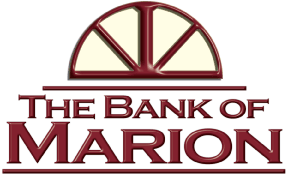GC Students Learn Financial Education With Online Program
Learning the value of a dollar is an important lesson for all and a program in use at Gate City High School is teaching students how to spend and save wisely.

Originally posted on virginiastar.net
In 2011, the Commonwealth of Virginia began including financial literacy courses in their required curriculum for high school students. The inclusion of these classes in addition to traditional academic courses is intended to give students a broader education that better prepares them for life when they graduate.
For Debbie Kilgore, Family and Consumer Science teacher at Gate City High School, teaching students financial responsibility has always been a priority.
In her search to find ways to give her students real-life scenarios for managing money, Kilgore stumbled upon a software program geared towards high school students called Banzai. The program, which is being used in classrooms across the United States is intended to give students a realistic and engaging education on personal finances.
Classroom situations are great for learning general concepts, but how often does a student actually get to do what they hear? Banzai helps students simulate the experience of spending their own money in real life. That way, students’ learning will extend beyond the class.
When beginning the program, Kilgore’s students take a computer based pretest that allows both the student and teacher to have an understanding of their financial knowledge. After completing the pretest, students begin an interactive life scenario section that presents realistic situations including making an income, paying bills and handling emergency financial situations.
Finally, once students have mastered the life scenarios, students begin the game portion of the software. Although, as the name alludes, the game portion is intended to be fun, it is also quite challenging.
Students are given more independence in this portion, which allows them the opportunity to make decisions and result in catastrophic virtual financial failure if they’re not careful. The point being that it’s preferable for students to lose everything they have in a computer program rather than years later in reallife.
Although Kilgore began using the software when she found it independently, her students have been able to continue reaping the benefits of the program through sponsorship from the Bank of Scott County.
“I think anytime the community can do something to work with the school system to help us help students, that’s a great thing. I appreciate any of the local banks that will donate their time,” Kilgore explained.
In addition to sponsoring the program, Kilgore often has representatives from the Bank of Scott County and other local banks come to her class to guest lecture her students and provide an additional dimension to their financial literacy education. The impacts of proper financial education can reverberate throughout a community, benefiting businesses, banks and consumers alike.
As Kilgore explained, “It’s in their interest too for our students to become educated in finances, so when they are adults they’re managing and handling their money in a responsible way. It helps everyone.”